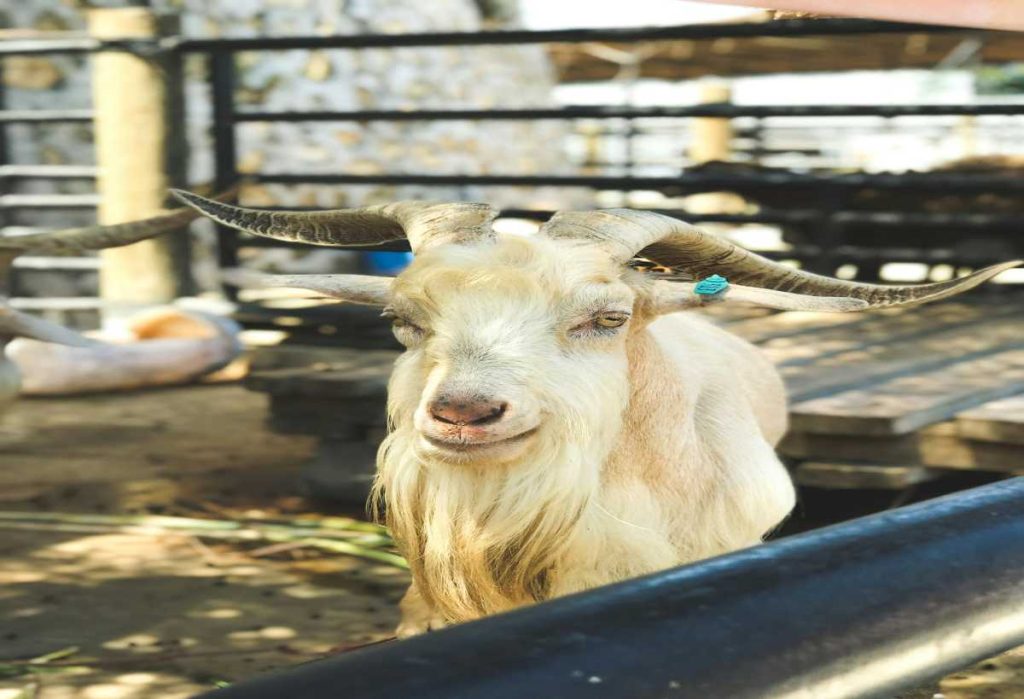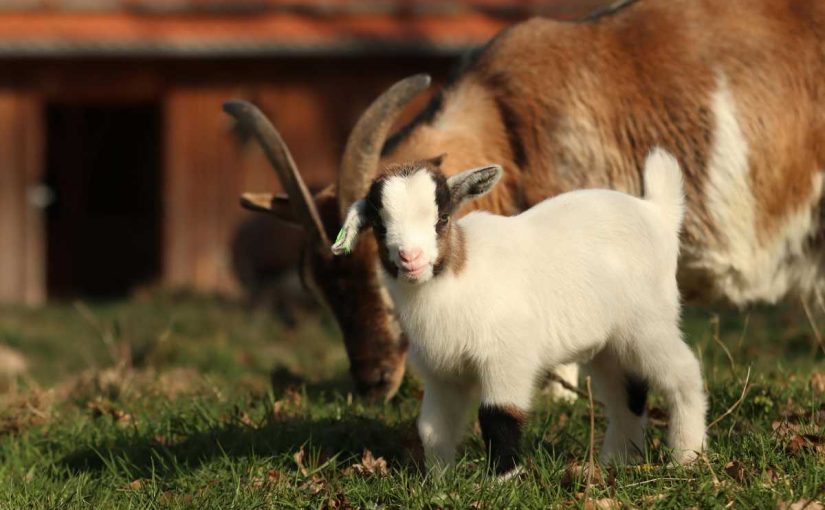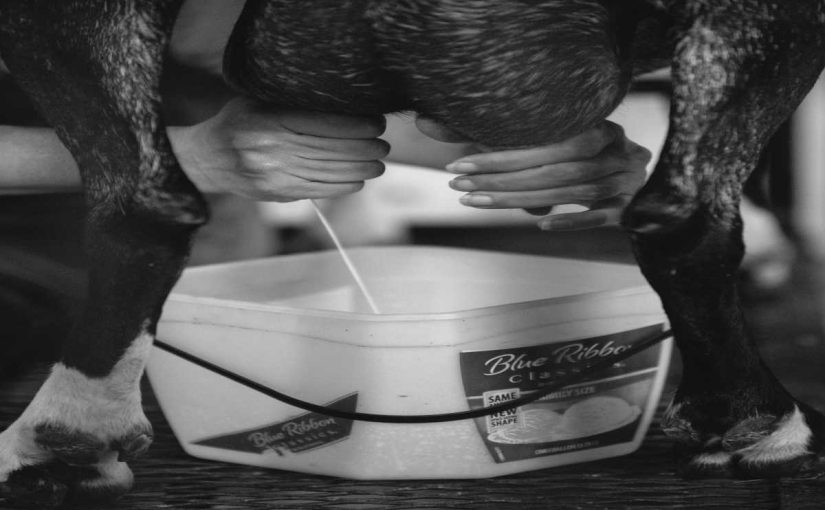Goat milk is often touted as a healthy alternative to cow’s milk, especially for children who experience lactose intolerance or milk sensitivities. While many children tolerate goat milk well, it’s important to remember that allergies can still develop. If your child is consuming goat milk and you’re concerned about a potential allergy, recognizing the early signs can help you take timely action. In this blog, we’ll explore five common signs of goat milk allergies in children, so you can be informed and proactive in managing their health.
1. Skin Reactions: Eczema, Rash, or Hives
One of the most common signs of a food allergy, including goat milk allergies, is a skin reaction. If your child has a sensitivity to goat milk, you might notice red, itchy rashes, eczema flare-ups, or hives. These skin conditions can appear within hours of consuming goat milk or products containing it.
What to Look For:
- Redness or irritation around the mouth or face after drinking goat milk.
- Itchy or inflamed patches on the skin, particularly in areas like the arms, legs, or belly.
- Hives or welts that may come and go.
Why It Matters:
Skin reactions are usually the first visible signs of an allergy. They can be uncomfortable for your child but are typically treatable with antihistamines or topical creams prescribed by a doctor. If the reaction is severe, consult a healthcare provider immediately.
2. Gastrointestinal Symptoms: Stomach Cramps and Diarrhea
Children with goat milk allergies may experience gastrointestinal distress as their body reacts to the proteins in the milk. Symptoms like stomach cramps, bloating, vomiting, or diarrhea are common signs of an allergic reaction.
What to Look For:
- Abdominal pain or cramping shortly after drinking goat milk.
- Vomiting or nausea following goat milk consumption.
- Loose stools or diarrhea, which may appear as watery or greenish in color.
Why It Matters:
Digestive symptoms are significant because they can lead to dehydration or malnutrition, especially in younger children. If you notice these symptoms after introducing goat milk, it’s important to speak to a pediatrician to determine if an allergy is present.
3. Respiratory Symptoms: Wheezing and Coughing
Goat milk allergies can also affect the respiratory system, leading to wheezing, coughing, or even difficulty breathing. These symptoms may be mild or severe, but they should always be taken seriously, as they can indicate an allergic reaction that may require immediate medical attention.
What to Look For:
- A persistent cough or wheezing after drinking goat milk.
- Difficulty breathing or shortness of breath.
- Nasal congestion, sneezing, or a runny nose that lasts for an extended period.
Why It Matters:
Respiratory symptoms can escalate quickly and become dangerous if not treated. Wheezing, coughing, and difficulty breathing can lead to a serious allergic reaction, such as anaphylaxis, which requires urgent medical attention. If your child shows signs of respiratory distress, it’s crucial to seek medical help immediately.

4. Swelling of the Face, Lips, or Tongue
Swelling in areas like the face, lips, or tongue is a more severe symptom of an allergic reaction to goat milk. This type of swelling, known as angioedema, can interfere with breathing or swallowing, and may be a sign of a life-threatening reaction.
What to Look For:
- Swelling around the mouth, lips, or tongue shortly after consuming goat milk.
- Difficulty swallowing or a sensation of tightness in the throat.
- Swelling that worsens quickly or spreads to other parts of the face or body.
Why It Matters:
Angioedema can be very serious, especially if the swelling affects the airway. If you notice any signs of swelling after your child consumes goat milk, seek medical attention immediately, as this could be a sign of a more severe allergic reaction, like anaphylaxis.
5. Behavioral Changes: Irritability or Fatigue
In some cases, children with goat milk allergies may not show obvious physical symptoms but may become unusually irritable, lethargic, or fatigued. These behavioral changes can sometimes indicate an allergic reaction, particularly if they occur soon after consuming goat milk.
What to Look For:
- Unexplained irritability or mood swings after drinking goat milk.
- Extreme tiredness or fatigue that doesn’t seem to improve with rest.
- Decreased appetite or refusal to eat or drink, particularly when goat milk is involved.
Why It Matters:
While not as immediately alarming as some other symptoms, changes in behavior can still signal an allergic reaction. If you notice any significant behavioral changes following the consumption of goat milk, it’s important to consult your child’s pediatrician to rule out an allergy or other underlying issues.
What to Do If You Suspect a Goat Milk Allergy
If you suspect your child has an allergy to goat milk, the first step is to stop giving them goat milk immediately and consult a pediatrician or allergist. A healthcare professional can perform tests, such as a skin prick test or blood test, to confirm whether your child is allergic to goat milk.
Managing a Goat Milk Allergy:
- Eliminate Goat Milk from Their Diet: Avoid all products containing goat milk, including cheese, yogurt, and other dairy products.
- Read Labels Carefully: Many processed foods may contain goat milk as an ingredient, so always check labels when buying packaged goods.
- Consider Alternatives: There are plenty of milk alternatives, such as almond milk, oat milk, or soy milk, that can be used as substitutes. Make sure any substitute meets your child’s nutritional needs.
Why It Matters:
Proper diagnosis and management of a goat milk allergy are crucial to prevent future allergic reactions and ensure your child’s health and safety. Always work closely with your healthcare provider to create an allergy management plan that works for your child.
Conclusion
Goat milk can be a great alternative to cow’s milk for many children, but for some, it can trigger allergic reactions. By understanding the common signs of goat milk allergies—skin reactions, gastrointestinal symptoms, respiratory issues, swelling, and behavioral changes—you can help protect your child from discomfort and more serious health risks. If you suspect your child has an allergy to goat milk, consult with a healthcare professional as soon as possible for proper diagnosis and management. With the right care and alternatives, your child can thrive without goat milk in their diet.




